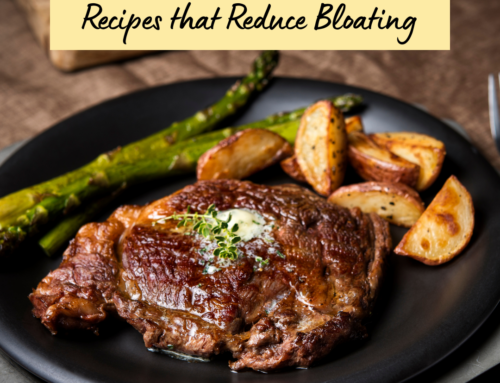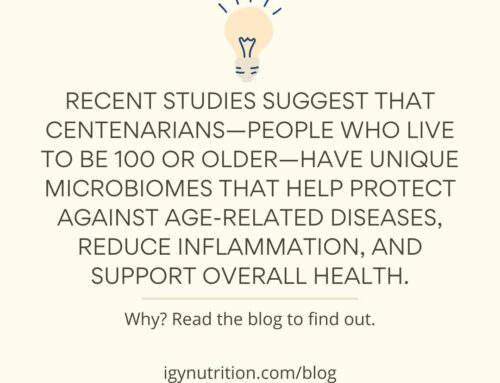Pandemic. Socially Distant. Hydroxychloroquine. Unlike six months ago, these words appear daily – many of which we would’ve never thought we’d ever experience, or even understand. Not only has COVID-19 created an entire glossary of related terms, but it has also created a whole new way of life for most of the world.
You’re washing your hands, avoiding crowds, wearing a mask, and have sanitizer in every room. You’re following the CDC and your state/county regulations to a tee. But with regulations loosening in many areas, it’s more important now than ever to ensure you’re protected on all fronts!
By now, most people are aware of the critical role the immune system plays in the body’s ability to fight COVD-19. However, how can our immune function be optimal when all the odds for the best defense are against us?
The immune system is quite complex, but there are factors that impact how it functions, which are usually (for the most part) within our control – such as stress, exercise, weight, sleep, alcohol consumption, smoking, and diet.1 But during a pandemic, when schools, daycares, gyms, and restaurants are closed, millions are unemployed, and there’s uncertainty, anxiety, and fear surrounding the virus and other current events – the vicious cycle of those (now not so controllable) factors can wreak havoc on your immune system.
So, what can we do besides considering these lifestyle factors and stocking up on conventional immune-boosting supplements like zinc, and vitamins C and D?2-4 Let’s focus on two key underlying aspects of immune health – your inflammatory response, and your microbiome.
Inflammatory Response: One of the ways viruses cause damage – in the case of COVID-19, to the lungs (at the least) – is excessive inflammation. While inflammation and fever are signs that the immune system is doing what it should, if these cannot be controlled, major cells and organs can be damaged, which results in serious health complications.1,5 There are numerous inflammatory pathways in the body, so it’s best to address inflammation with a multifaceted approach.6
Curcumin – As the active constituent in the spice turmeric, you can sprinkle some into your next dish. Although, you can obtain a more concentrated dose by taking it in supplement form. Curcumin has been extensively studied for various aspects of health because of its protective property as an antioxidant, but also because of its ability to target multiple inflammatory pathways.7 There’s also been some initial research conveying that curcumin may have a favorable role in microbiome balance.8 Another benefit associated with curcumin that may be of interest during these unprecedented times is its potential to help with mood balance.9,10
N-acetylcysteine (NAC) – Don’t be alarmed by its name, as NAC can have protective effects for the brain and the lungs – both of which COVD-19 have been shown to have a negative impact on.11,12 NAC is a precursor to the body’s main antioxidant (called glutathione) and has been shown to guard against excess inflammation.13 Just like with infections, inflammation and oxidative stress levels can also be elevated because of smoking and ozone exposure – so it’s reassuring to see some research that’s shown NAC can help protect the lungs from damage caused by these factors.14,15 Because of NAC’s antioxidant and anti-inflammatory properties, plus its mucous-thinning effect, NAC has shown to modulate viral replication during certain infections, and is an agent of interest in recent studies looking at therapeutic approaches for COVID-19.16-18
Microbiome: Your microbiome is all the good and bad microbes (such as bacteria and viruses) that live on and inside your body. We all have a unique microbiome, but one thing we have in common is the role that it plays in all aspects of our health, particularly how our immune system functions.19 Poor immune function is one of the effects of an imbalanced microbiome – and since our microbiome changes throughout our lives, it is always important to make sure that we don’t offset the balance in favor of microbes that cause excess inflammation and infection.20
Probiotics – Probiotics are beneficial bacteria that can be consumed in fermented foods (such as yogurt, kefir, kimchi, and sauerkraut), taken in supplement form, or applied topically. By providing your body with beneficial bacteria, you can support a balanced microbiome. There are several probiotic strains that are associated with different health benefits in addition to immune function such as skin, liver, brain, lung, and gut health. And for those facing the “quarantine fifteen”, the microbiome has even been shown to play a role in weight management.
Prebiotics – Prebiotics are non-digestible fibers that probiotics use to survive (since they are living). Therefore, in addition to promoting your good bacteria, prebiotics have also shown to have a beneficial impact on the inflammatory response and immune function.21 There are natural sources of prebiotics in foods such as bananas, onions, garlic, and asparagus. However, you may also see prebiotics on a supplement label written as “galacto-oligosaccharide (GOS)”, “fructo-oligosaccharide (FOS)”, or inulin, and when you combine these with probiotics, you get a synergistic effect known as a “symbiotic”!22
As you can see, there are a lot of different components that affect your immune function. If there’s an area you feel needs more work, you may want to consider talking to your doctor about adding in supplements such as curcumin, NAC, prebiotics, and probiotics. Do your best to make healthy lifestyle choices as often as possible and you’ll set the stage for optimal health!
References:
-
How to boost your immune system. Harvard Medical School. https://www.health.harvard.edu/staying-healthy/how-to-boost-your-immune-system. Published September 2014. Updated 6 April 6, 2020. Accessed August 27, 2020.
-
The innate and adaptive immune systems. Cologne, Germany: Institute for Quality and Efficiency in Health Care; 2006. https://www.ncbi.nlm.nih.gov/books/NBK279396/. Accessed August 27, 2020.
-
Prietl B, Treiber G, Pieber TR, Amrein K. Vitamin D and immune function. Nutrients. 2013;5(7):2502-2521. Published 2013 Jul 5. doi:10.3390/nu5072502.
-
Carr AC, Maggini S. Vitamin C and Immune Function. Nutrients. 2017;9(11):1211. Published 2017 Nov 3. doi:10.3390/nu9111211.
-
Walter EJ, Hanna-Jumma S, Carraretto M, Forni L. The pathophysiological basis and consequences of fever. Crit Care. 2016;20(1):200. Published 2016 Jul 14. doi:10.1186/s13054-016-1375-5.
-
Chen L, Deng H, Cui H, et al. Inflammatory responses and inflammation-associated diseases in organs. Oncotarget. 2017;9(6):7204-7218. Published 2017 Dec 14. doi:10.18632/oncotarget.23208.
-
He Y, Yue Y, Zheng X, Zhang K, Chen S, Du Z. Curcumin, inflammation, and chronic diseases: how are they linked?. Molecules. 2015;20(5):9183-9213. Published 2015 May 20. doi:10.3390/molecules20059183.
-
Peterson CT, Vaughn AR, Sharma V, et al. Effects of Turmeric and Curcumin Dietary Supplementation on Human Gut Microbiota: A Double-Blind, Randomized, Placebo-Controlled Pilot Study. J Evid Based Integr Med. 2018;23:2515690X18790725. doi:10.1177/2515690X18790725.
-
Kaufmann FN, Gazal M, Bastos CR, Kaster MP, Ghisleni G. Curcumin in depressive disorders: An overview of potential mechanisms, preclinical and clinical findings. Eur J Pharmacol. 2016;784:192-198. doi:10.1016/j.ejphar.2016.05.026.
-
Lopresti AL, Maes M, Maker GL, Hood SD, Drummond PD. Curcumin for the treatment of major depression: a randomised, double-blind, placebo controlled study. J Affect Disord. 2014;167:368-375. doi:10.1016/j.jad.2014.06.001.
-
Catanzaro, M., Fagiani, F., Racchi, M. et al.Immune response in COVID-19: addressing a pharmacological challenge by targeting pathways triggered by SARS-CoV-2. Sig Transduct Target Ther 5, 84 (2020). https://doi.org/10.1038/s41392-020-0191-1.
-
Netland J, Meyerholz DK, Moore S, Cassell M, Perlman S. Severe acute respiratory syndrome coronavirus infection causes neuronal death in the absence of encephalitis in mice transgenic for human ACE2. J Virol. 2008;82(15):7264-7275. doi:10.1128/JVI.00737-08.
-
Kerksick C, Willoughby D. The antioxidant role of glutathione and N-acetyl-cysteine supplements and exercise-induced oxidative stress. J Int Soc Sports Nutr. 2005;2(2):38-44. Published 2005 Dec 9. doi:10.1186/1550-2783-2-2-38.
-
Valdivieso ÁG, Dugour AV, Sotomayor V, Clauzure M, Figueroa JM, Santa-Coloma TA. N-acetyl cysteine reverts the proinflammatory state induced by cigarette smoke extract in lung Calu-3 cells. Redox Biol. 2018;16:294-302. doi:10.1016/j.redox.2018.03.006.
-
Chen QZ, Fu ZD, Zhou YB, Zhou LF, Yang CT, Li JH. N-acetyl -L-cysteine reduces the ozone-induced lung inflammation response in mice. Sheng Li Xue Bao. 2016;68(6):767-774.
-
Mata M, Morcillo E, Gimeno C, Cortijo J. N-acetyl-L-cysteine (NAC) inhibit mucin synthesis and pro-inflammatory mediators in alveolar type II epithelial cells infected with influenza virus A and B and with respiratory syncytial virus (RSV). Biochem Pharmacol. 2011;82(5):548-555.
-
Jorge-Aarón RM, Rosa-Ester MP. N-acetylcysteine as a potential treatment for novel coronavirus disease 2019 [published online ahead of print, 2020 Jul 14]. Future Microbiol. 2020;10.2217/fmb-2020-0074. doi:10.2217/fmb-2020-0074.
-
Poe FL, Corn J. N-Acetylcysteine: A potential therapeutic agent for SARS-CoV-2 [published online ahead of print, 2020 May 30]. Med Hypotheses. 2020;143:109862. doi:10.1016/j.mehy.2020.109862.
-
Zheng D, Liwinski T, Elinav E. Interaction between microbiota and immunity in health and disease. Cell Res. 2020;30(6):492-506. doi:10.1038/s41422-020-0332-7.
-
Thomas S, Izard J, Walsh E, et al. The Host Microbiome Regulates and Maintains Human Health: A Primer and Perspective for Non-Microbiologists. Cancer Res. 2017;77(8):1783-1812. doi:10.1158/0008-5472.CAN-16-2929.
-
Shokryazdan P, Faseleh Jahromi M, Navidshad B, Liang JB. Effects of prebiotics on immune system and cytokine expression. Med Microbiol Immunol. 2017;206(1):1-9. doi:10.1007/s00430-016-0481-y.
-
Pandey KR, Naik SR, Vakil BV. Probiotics, prebiotics and synbiotics- a review. J Food Sci Technol. 2015;52(12):7577-7587. doi:10.1007/s13197-015-1921-1.




